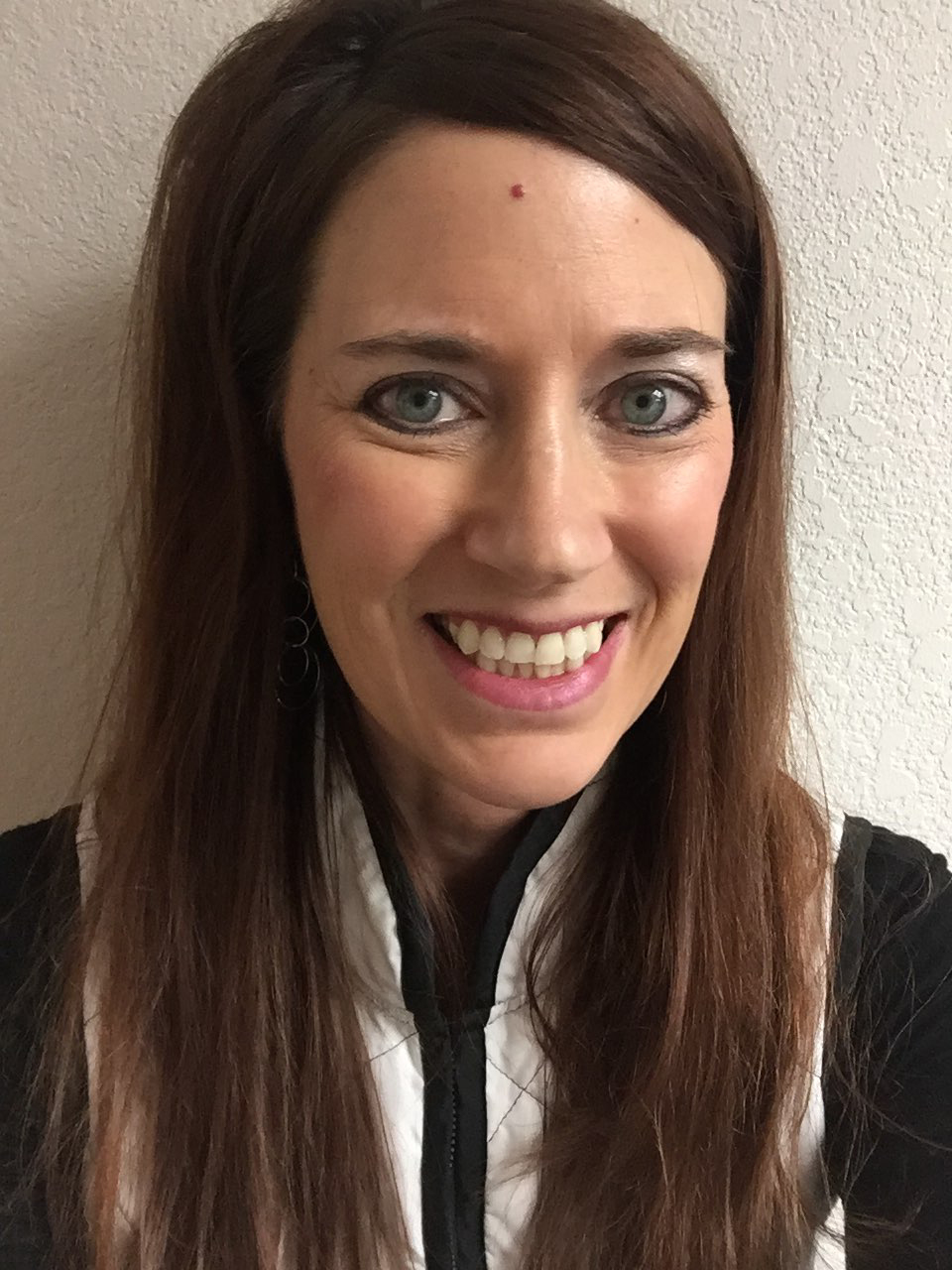Developing Critical Thinking Skills In Pediatric Dysphagia: Part 3 – Swallowing Disorders And Medically Based Feeding Problems #e203
Presenter: Jennifer Dahms, MS, CCC-SLP, BCS-S
Part 3 – Swallowing Disorders And Medically Based Feeding Problems
This online course is the third in a 3-part series.
When working with children who have oropharyngeal dysphagia, the speech-language pathologist will need to be aware of all possible signs and symptoms of swallowing difficulties. Once a diagnosis is made, we need to develop an appropriate therapy plan that addresses the needs of the child based on the reasons behind the dysphagia.
SLPs also are often confronted with other diagnoses with specific concerns from the family in terms of a child’s feeding deficits. It is crucial to determine what difficulties are present, what the possible reasons behind those symptoms are in the first place, and what the best techniques are for targeting such deficits. This course includes video examples, case studies, lab practice, and application activities. Research on various pediatric dysphagia and medically-based issues with pediatrics will be discussed.
Offered for 0.8 ASHA CEUs – 8 Contact Hours. Stop and re-start the course at any point. Learners retain access to course content after completion for ongoing reference and review.
Course Topics – Course Run Time: 8:03:14
- Cranial Nerves and Muscles
- Swallowing Deficits and Therapy Techniques
- Deficits and Therapy Techniques Related To:
- Attention
- GERD
- Constipation
- Autism Spectrum Disorders
- Prematurity
- Tube Feedings
- Volume Limitation Issues
- Cleft Lip/Palate
- Oral Intake of Medication
- Review and Summary
– C.L., prior course participant
Read more comments about this course!
– A.T., prior course participant
Read more comments about this course!
The content of this online CE course does not focus exclusively on any specific proprietary product or service. Presenter financial and non-financial disclosures may be found in the Presenter & Disclosures area.
Video PowerPoint presentation with author narration & downloadable handout. Stop and re-start the course at any point. Learners retain access to course content after completion for ongoing reference and review.
Reviews
"Working with children with Autism was the best discussion. I liked the case studies." A.P. (Jun. 2025)
"I appreciated going over positioning and liked the strategies presented." T.G. (Apr. 2025)
"Specific techniques to use with pediatric populations were beneficial. I liked the self-paced format." H.M. (Mar. 2025)
"Tube feeding information and strategies were helpful. Nice coverage of a range of issues." S.H. (Feb. 2025)
"I liked the topic on GERD. Lots of good info." S.M. (Feb. 2025)
"All the info on premature infants was beneficial. I liked the examples and videos." C.H. (Jan. 2025)
"Signs and symptoms of GERD and strategies to help introduce new foods to children with Autism. Presenter appears to have extensive clinical experience and gives good examples in case studies." D.B. (Jan. 2025)
"I will benefit from all topics. I liked that I could view the content at my own pace." V.H. (Jan. 2025)
"Loved the patient videos. I completed all 3 parts - they were great. Presented in a way you can follow easily and take at your own pace." K.S. (Dec. 2024)
"The discussion on cranial nerves was beneficial. I liked the case studies." J.B. (Dec. 2024)
"Cleft lip and palate were helpful to discuss. I liked the strategies listed." M.C. (Nov. 2024)
"Information about newborns was beneficial. Course covers a variety of topics." M.B. (Nov. 2024)
"Very thorough and well-paced! I liked the sensory based feeding difficulties." L.K. (Nov. 2024)
"The breakdown of how various medical diagnoses could affect swallowing in specific ways was beneficial." A.W. (Oct. 2024)
"Many children with medical-based feeding problems attend our clinic and this information is not only a good review, but the details in the presentation will assist me in thinking through all the parts when diagnosing and making an effective therapy plan. In addition, the information is presented in a way that will assist with caregiver education. I enjoyed the organization of information." B.J. (Oct. 2024)
"Most beneficial was the discussion about the premature babies. I liked the accompanying handouts." B.H. (Oct. 2024)
"I liked that this course covered a broad base of medically complicated cases." J.G. (Sep. 2024)
"The NG tube feedings were helpful. I liked the case studies." A.H. (Sep. 2024)
"Feeding difficulties in autism was a beneficial topic. I liked the therapeutic strategies for swallowing deficit." C.J. (Sep. 2024)
"Strategies were helpful. I enjoyed the visual and auditory presentation." C.S. (Aug. 2024)
"I liked the discussions involving varied medical conditions and how to target feeding therapy." C.F. (Jul. 2024)
"It was beneficial looking at whole child....neuro issues along with rigidities." N.R. (Jul. 2024)
"Swallowing treatment was beneficial. I enjoyed the clear images and descriptions." K.W. (Jul. 2024)
"Specific tips on therapy techniques were helpful. I liked the case history questions/application questions." H.S. (Jun. 2024)
"It was beneficial to discuss using different strategies with restrictive or rigid food intake and information for premature infants and children. I liked the interactive videos and labs." A.A. (Apr. 2024)
"The anatomy and physiology portions were helpful. The course was easy to follow along with. Loved the case studies and examples." H.L. (Mar. 2024)
"The feeding strategies were beneficial. I enjoyed all topics." R.D. (Dec. 2023)
"All very valuable. Excellent presentation." M.B. (Sep. 2023)
"Assessment & treatment discussions were beneficial. I liked problem-solving what is being seen." L.T. (Aug. 2023)
"Research and premature babies section was beneficial. I liked the flow of the presentation - building from Part 1 and 2." V.A. (Jul. 2023)
"I will use the information about treating premature infants in therapy, as my hospital has a NICU. I liked that it was one video and not broken up constantly by tests like other courses. I could focus well. I also loved the case study questions." K.A. (Jun. 2023)
"Support with taking medications (never come across this before in a training). Plenty of time to watch it - I like that my course access didn’t expire." E.B. (Apr. 2023)
"Learning interventions for children with medical complexities was beneficial." A.H. (Mar. 2023)
"Adapting adult strategies I am familiar with, and targeting peds appropriately." M.M. (Feb. 2023)
"I liked the strategies. This course was easy to navigate." C.S. (Jan. 2023)
"I liked the discussion regarding babies and children with ADHD. The examples of therapy techniques were beneficial." C.B. (Jan. 2023)
"This content was well presented. I liked the discussion of premature infants and feeding difficulty." N.L. (Dec. 2022)
"All discussions were beneficial - information on tube feed weening, information on premature infants and bottle feeding, information on cleft lip/palate and bottle feeding, information on attention deficits and feeding." C.L. (Nov. 2022)
"The review of the cranial nerves and swallowing function was good. I liked being able to go back and repeat topics again to make sure I understood." A.S. (Nov. 2022)
"I really enjoyed the structure and pacing of this course. It was helpful to build upon the previous content, and to engage in more clinical problem solving. I enjoyed that I was able to self-pace, and that the information was presented in a clear and concise way." K.W. (Aug. 2022)
"I liked the videos, application questions, and lab exercises." J.S. (Jun. 2022)
"I am new to working with patients with feeding/swallowing deficits, so all of this information will be beneficial to my daily practice. Great information." M.W. (May 2022)
"Organized, easy to follow. I liked that I could complete it at my own pace." E.E. (May 2022)
"I liked the varying medical diagnoses and the treatment plans for each - the treatment sections with real-life examples." B.S. (Feb. 2022)
"I liked the case studies and tx approaches." G.P. (Feb. 2022)
"All of the different practices (exercises) offered to understand better what our patients with feeding difficulties go through, along with such a detailed and great explanation of how our oral structure works, muscle by muscle, motor abilities, etc. The presenter's way of explaining all information is such an easy way to digest! THANK YOU FOR YOUR WORK!" C.R. (Jan. 2022)
"I was pleasantly surprised to learn how complicated the impact of ADHD on feeding can be; I have many kids on my caseload with ADHD and plan to dig deeper into their specific feeding issues. I also appreciate the tips on encouraging/eliciting tongue elevation as well as improving bottle/breastfeeding with cleft lip. The complex case studies and suggestions for therapeutic interventions to address specific areas of need/impairments were the most helpful." N.C. (Jan. 2022)
Course Objectives
- Identify the cranial nerves and muscles that innervate the structures involved in swallowing dysfunction.
- Identify the possible symptoms that could be clinical signs of aspiration.
- List the different therapeutic activities that can be implemented to improve a child’s swallowing function.
- Identify possible symptoms of and therapeutic activities for attention-based feeding problems.
- Identify possible symptoms of and therapeutic activities for feeding problems associated with GERD.
- Identify possible symptoms of and therapeutic activities for feeding problems associated with constipation.
- Identify possible symptoms of and therapeutic activities for feeding problems associated with Autism.
- Identify possible symptoms of and therapeutic activities for feeding problems associated with prematurity.
-
Identify possible symptoms of and therapeutic activities for feeding problems associated with tube feedings.
- Identify possible symptoms of and therapeutic activities for volume limitation feeding problems.
- Identify possible symptoms of and therapeutic activities for feeding problems associated with cleft palate.
- Identify possible symptoms of and therapeutic activities for decreased oral medication intake.
Presenter & Disclosures

Jennifer Dahms, MS, CCC-SLP, BCS-S, completed her Bachelor of Science and Master of Science degrees in Communication Sciences and Disorders at the University of Wisconsin – Milwaukee. She has worked in two different counties in Wisconsin, providing Birth-to-Three and outpatient therapy services. She moved to Boise, Idaho in 2006 and initially worked for St. Luke’s Idaho Elks Rehabilitation Services for two years. Jennifer then opened her own private practice, Valley Pediatric Feeding LLC, in October 2008. Over the course of her career, she has focused the majority of her continuing education on pediatric feeding disorders. Jennifer earned ASHA’s ACE Award in 2010, 2011, 2013, 2015, and 2017. She initially became Board Certified in Swallowing and Swallowing Disorders in 2011. She is a member of the Dysphagia Research Society and is a SIG 13 member. Jennifer has presented on pediatric feeding disorders at state and regional conferences as well as with several online webinars.
Speaker Disclosures:
Financial — Jennifer Dahms is presenter of online CE courses sponsored by Northern Speech Services; receives royalties.
Nonfinancial — Jennifer Dahms has no relevant nonfinancial relationships to disclose.
Intended Audience / Accreditation

This program is offered for 0.8 ASHA CEUs (Intermediate Level; Professional Area).

Intended Audience
- Speech-Language Pathologists
ASHA CEUs:
Northern Speech online courses are registered with ASHA and are offered for ASHA CEUs. The number of ASHA CEUs is noted above. Note that 0.1 ASHA CEU = 1 contact hour = equals 1 CEE.
Earning ASHA CEUs and the ASHA CE Registry:
To earn CEUs from this course and have ASHA CEUs submitted to the ASHA CE Registry, course participants must satisfy each of these requirements:
- Participants must meet the eligibility requirements to earn ASHA CEUs (see below).
- Participants must indicate – prior to course completion – their intent for Northern Speech to submit this course to ASHA.
- Participants must complete/view this course in its entirety.
- Participants must complete the course post test with a minimum of 80% accuracy.
- After successful completion of the post test and completion of the course evaluation, a certificate of course completion is presented to the participant electronically via PDF.
- For those participants who indicated their intent for the ASHA CE Registry, course completion status will be submitted by Northern Speech to ASHA within 45 days of the course completion date.
Eligibility To Earn ASHA CEUs:
Attendees must meet at least one of the following conditions in order to be eligible to earn ASHA CEUs:
- Current ASHA Member.
- ASHA Certificate of Clinical Competence (CCC) Holder.
- Licensed by a state or provincial regulatory agency to practice speech-language pathology (SLP) or audiology.
- Credentialed by a state regulatory agency to practice SLP or audiology.
- Credentialed by a national regulatory agency to practice SLP or audiology.
- Engaged in a Clinical Fellowship under the supervision of an individual with their ASHA CCC.
- Currently enrolled in a master's or doctoral program in SLP or audiology.
If an attendee is not an ASHA member or CCC holder but meets any of the above criteria, they may inform the ASHA CE Registry of their eligibility by visiting this site.
ASHA CE Registry:
During the enrollment process, if you select to receive ASHA credit for this course and if you provide your ASHA number, Northern Speech will automatically submit your CEU information to the ASHA CE Registry after successful course completion (80% on post test). This submission happens once per month, during the first week of the month. For example, if you complete your course on November 7th, Northern Speech will submit all November online course CEUs to ASHA during the first week of December. When ASHA inputs the information into their database, they will mark the course as completed on the last day of the month in which it was completed, so November 30th using this example. The certificate of completion available for you to print immediately, however, will reflect the actual completion date, November 7th in this example. Due to ASHA processing procedures please allow 2-3 weeks, from the submission date, for the course to appear on your ASHA transcript.
Licensing Boards: Most state licensing boards DO accept CEUs earned online (usually classified as home-study credits). Some state boards do, however, place a limit to the number of credits that can be earned via home study/online courses. For the most current information, we suggest that you contact your licensing board or agency to verify acceptance policies and/or any credit limits related to home-study courses prior to registering for this course.
Additional accrediting agencies by which Northern Speech is an approved CE provider:
- California: NSS is approved as a provider of continuing education by the California Speech-Language Pathology & Audiology Board. Provider #PDP4. Online CEU limits may apply; please contact SLPAHADB for current online CEU acceptance policies.
- Iowa: NSS is approved as a provider of continuing education by the Iowa Board of Speech Pathology and Audiology Examiners. Provider #169.
- Kansas: NSS is approved as a provider of continuing education by the Kansas Department of Health and Environment. Provider #LTS-S0005.
- Florida: NSS is approved as a provider of continuing education by the Florida Speech-Language Pathology and Audiology Board. Provider #SPA-026.
- New Jersey: NSS is approved as a provider of continuing education by the New Jersey Department of Education. Provider #1654.
Frequently Asked Questions
Customer Support: Please phone 888.337.3866 or email info@northernspeech.com.
Course Completion Timeframe:
You have unlimited time to complete our online courses. You may log off and log on as often as you’d like to in order to complete all sections of a course.
However, completion dates are based on Eastern Standard Time. Therefore, if you need your CEUs by a certain date, be sure to complete the course test before 11:59pm EST on that date. For example, if you need CEUs before January 1st, you will need to complete the course test before 11:59pm EST on December 31st.
Content Access:
Access to course materials and content does not expire, even after completing the post test. You may continue to review course material by logging into your NSS account, clicking the My Online Courses tab, and then viewing your desired course.
Certificate of Completion:
On successful completion of the post test (80%), a certificate will be immediately available for download and/or printing. This certificate will include your name, date of completion (based on Eastern Time Zone, USA/Canada), and number of contact hours (CEUs / CEEs). Please note that CEUs are awarded on the date of successful test completion, not the date of course enrollment. Please ensure that you successfully complete the post test prior to any licensure renewal dates.
ASHA CE Registry Submission:
During the enrollment process, if you select to receive ASHA credit for this course and if you provide your ASHA number, NSS will automatically submit your CEU information to the ASHA CE Registry after successful course completion (80% on post test). This submission happens once per month, during the first week of the month. For example, if you complete your course on November 7th, NSS will submit all November online course CEUs to ASHA during the first week of December. When ASHA inputs the information into their database, they will mark the course as completed on the last day of the month in which it was completed, so November 30th using this example. The certificate of completion available for you to print immediately, however, will reflect the actual completion date, November 7th in this example. Due to ASHA processing procedures please allow 2-3 weeks, from the submission date, for the course to appear on your ASHA transcript.
Purchase Orders:
Purchase orders are currently not accepted for online orders, if you wish to submit a purchase order please do so at info@northernspeech.com or fax to 888-696-9655.
What is an Online Course?
Our Online Courses consist of video, audio, and/or text content and are offered for ASHA CEUs. Unlike a webinar, which requires participants to be logged on and at a computer at specific times, our Online Courses are available to you at any time, from any device, via your NorthernSpeech.com online account. You may work at your own pace and start and stop your course as you wish. Your course will conclude with a short post test. On successful completion of the post test (>80%), a printable certificate of completion is presented to you.
Receiving CEUs:
Northern Speech is an ASHA CE Provider and our online courses are registered with ASHA and offered for ASHA CEUs. Please note that successful completion of the online post test is required prior to the awarding of CEUs. Please contact your state licensing board for acceptance policies related to CEUs earned online. Please note that courses offered for university students are not applicable for CEUs.
Registering for an online course:
You may browse all online courses by clicking the Continuing Education tab above, then Online Courses. Once you find a course, click Enroll Now, and you will be asked to either log into your existing Northern Speech account or create a new online account. Once you’ve entered your account information and provided your credit card payment, your course will be immediately available to you.
Accessing your purchased course or returning to a purchased course:
You will be able to access your online course by logging into your Northern Speech account and then clicking the My Online Courses tab on your profile screen. Click the course you would like to start or to resume. From there, proceed through the course sections until you are ready to complete the post test. You do not have to complete your course all at once. You may log on and off as you wish.
Testing requirements:
Each online course concludes with a post test consisting of multiple choice or true & false questions. Scores of 80% or greater are required for successful course completion and awarding of CEUs. You may revisit course materials and retest as needed to achieve a passing score.
Number of CEUs offered:
We offer courses from 1 to 21 contact hours. Each course will note the number of CEUs offered. Please note that 0.1 CEU = 1 contact hour = 1 CEE.
State licensing boards and online CEUs:
NSS is an ASHA CE Provider and most state licensing boards DO accept ASHA CEUs earned online (usually classified as home-study credits). Some boards do, however, place a limit to the number of CEUs that can be earned via home study/online courses. For the most current information, we suggest that you contact your licensing board or agency to verify acceptance policies and/or any CEU limits related to home-study courses prior to enrolling in an online course.
Course formats:
Our course formats include: text, audio, video, and PowerPoint with author narration. Each course will note the format on the course description page. Most courses include closed captioning.
Course handouts:
Most of our online courses provide a link to download the accompanying handout as a PDF file.
Group discounts:
Groups of 3 or more are eligible for a 20% discount on each registration on most of our online courses. To receive this discount, registrations need to be processed together via the "Group Rates" tab on the Online Course of your choice.
Computer requirements:
For our online courses to function best, we recommend that you update your computer to include the newest version of your Internet browser (Safari, Chrome, Firefox, Edge, Internet Explorer, etc.) and newest version of your computer's operating system. Also a high-speed Internet connection is recommended (cable or DSL). Speakers or headphones will be required for many of our courses as many contain audio components.
Course Cancellation Policy:
A purchased online course can be exchanged, refunded, or transferred to another individual if contact is made with NSS (via phone or email) within 30 days of purchase and the course materials have not been viewed or downloaded.
Special Needs:
Please click here for any special needs requests, and we will do our best to accommodate them.
| Contact Us |





